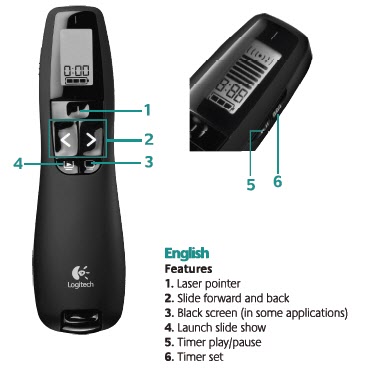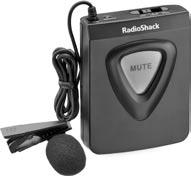|
Information
and Instructions for Guest Lecturers
Guest Lecturers,
Thank you once again for your
willingness to participate in the Stanford Course: Perspectives in Assistive
Technology.
Presentation topic: We most
probably have spoken about your guest lecture topic and how best to present it.
Suitable topics can be anything that relates to disability, rehabilitation,
assistive technology, or design techniques for which you have both expertise
and passion. You should plan for about 45 minutes presentation including
questions. Please consider bringing items to show, pass around, and demonstrate
as this adds interest to your talk.
Information needed: If you
haven't done so already, please provide me with the following information for
the class website and announcements:
- Title of your talk
- One paragraph description of your
talk
- One paragraph biosketch
- Contact information that you would
like to give out
- A digital photograph (head
shot)
Class location: The class will
be held in in Lathrop Library, Classroom 282. Refer to the
Classroom Location and Accessibility
Information webpage for driving directions and parking instructions. Let me
know if you would like me to mail you a printed map highlighting the classroom
location and nearby parking areas.
Parking information:
-
No parking permits are required for
vehicles displaying a Disabled Parking.
-
Parking in any "A" or "C"
designated spaces at Stanford requires a permit until 4:00pm whereas parking
around the Oval requires a permit until 6:00pm. A parking ticket is
$45.
-
There is a large metered parking
lot adjacent to Tressider Union.
-
Refer to the
online campus
map and the Lathrop Library Vicinity Parking Map
for the location of these and other parking lots and to assist you in finding
your way from your car to the classroom.
Time schedule: All times are
approximate
| Time |
Activity |
| 3:15 |
Time for a Student Team meeting
with Dave outside the classroom |
| 3:30 |
Classroom open, Dave begins
setup |
| 4:00 |
Class start time, students sign
attendance sheet and grab a cookie |
| 4:05 |
Late students continue to
arrive |
| 4:05 |
All students seated, interactive
session consisting of course administrative items and topical pre-lecture
begins |
| 4:30 |
Social Media & Bio
Break |
| 4:35 |
Guest lecturer introduction and
presentation |
| 5:20 |
Question & Answer
time |
| 5:30 |
Class dismissed and additional
time for student interaction |
Class timing:
-
Please plan to arrive at the
classroom by 3:45pm for setup. Give yourself extra time to negotiate
traffic, navigate around campus, find a parking space, and make your way to the
classroom.
-
Class begins promptly at
4:00pm.
-
The class session ends at
approximately 5:30pm.
-
Unless otherwise arranged, the
class will start with a short interactive session that I will present. After a
short break, I will introduce you.
-
You will have about 45 - 50
minutes for your presentation.
-
Finish your presentation by
5:25pm to allow for a minimum of 5 minutes for questions and
discussion.
-
Please plan to stick around after
the end of class for additional questions and to interact with students who
approach you at the front of the classroom.
PowerPoint
presentation:
-
Please use standard fonts and
simple backgrounds.
-
If you plan to show devices during
your presentation, please include a photo of each in your PowerPoint slide
deck.
-
If you have videos, post them to
YouTube and provide the url link in a slide.
-
Email me your PowerPoint
presentation by 5pm on the day before you are scheduled to talk so I can load
it on my laptop. (Having your presentation pre-loaded on my laptop assures that
the slides will display properly and makes them available before class to
students with visual impairments.)
-
If you wish to use
something other than PowerPoint, please provide an equivalent pdf version of
your presentation for posting on the course website.
-
An LCD projector and speakers are
available.
-
You will use a wireless device
(with a built-in laser pointer) to advance the slides. (See
below)
-
Access to the Internet is available
through my laptop.
PowerPoint wireless
presenter:
- Here are the controls for the
Logitech R800 wireless presenter.
 - You will be using the "Slide forward
and back" buttons as well as the "Laser pointer".
Wireless microphone:
-
You will be given a wireless
microphone to clip on your pocket, lapel, or belt to record the lecture audio.
Be sure to wear clothing that will accommodate both the microphone and
transmitter clips.
-
Clip the microphone onto your
clothing (onto your collar or the upper portion of your shirt or blouse), 3 to
8” from your mouth.
-
Clip the transmitter to your belt
or pocket.
-
The TALK / STBY / OFF switch (this
is a three-position switch) on the transmitter should be in the TALK position
during your presentation.
-
To momentarily turn off the
microphone, press and hold MUTE button on the transmitter body. Release it when
you are ready to speak again.
-
Use the STBY position on the
transmitter to avoid a popping noise that might occur when you turn TALK / STBY
/ OFF switch to the OFF position and then back to the TALK
position.
-
Do not handle the microphone during
your presentation as doing so generates noise in the recorded audio
file.
-
If you want to pick up audio from
someone you are interviewing or someone who has asked a question, do not unclip
the microphone, just stand close to him/her.
-

|

|
|
Radio Shack
wireless transmitter and microphone |
Three-way
switch on wireless transmitter |
Audience:
- The audience will Stanford
engineering students (mostly mechanical engineering) and individuals from the
greater Stanford community (perhaps as many as 60 people total).
- There may be several students who
arrive late or have to leave early due to other class committments.
Student interest:
- Learning about rehabilitation and
assistive technology,
- Obtaining information that can help
them successfully pursue their assistive technology student team project for
this class, and
- Understanding how their Stanford
education in engineering can be used to benefit people with disabilities and
older adults.
- Please do not overwhelm the students
with technical details. One message to communicate is they can successfully and
confidently pursue their assistive technology project.
Handout material: Please provide
me with a soft copy of any handout material the day before before your
presentation if you would like me to make copies of them for the
class.
Presentation content
suggestions: Please consider including the following items (if appropriate)
in your presentation:
- Introduce yourself, briefly provide
some career-oriented context: your educational and employment
backgrounds
- Who do you work for
presently?
- What are you doing now?
- What kinds of projects are you
working on?
- With whom do you work - professional
colleagues in what fields?
- What tools and design processes do
you use to succeed in your job?
- How are you funded?
- What are some unmet challenges in
your specific field of work?
- What is your perspective on your
work and your professional field as it relates to assistive technology and
rehabilitation?
- How does your work benefit people
with disabilities or the fields of assistive technology and
rehabilitation?
- Explain the relevance and importance
of your work or lecture topic to both assistive technology and mechanical
engineering.
- Provide at least one good example of
your work (hopefully it will include some mechanical engineering
components).
- Include comments on how you address
ethical issues such as safety and privacy and how you interact with people with
disabilities.
- Engage the audience with questions
throughout your presentation such as:
- What do you think of when ...
?
- How would you solve this problem
... ?
- Bring items to display, demonstrate,
and pass around.
- Include an "Agenda" slide at the
beginning and a "Summary" slide at the end of your presentation..
- Please keep your presentation short
and concise to allow for questions and discussion during the last 10 minutes of
the class.
Lecture material posted on the
course website:
-
The following material will be
posted on the course website. This serves the review needs of students who were
not able to attend the lecture and provides information to community members
who are outside the local area.
- Contact information -
information for students to contact you
- Lecture video - recorded from
the entire class session
- Slides - a pdf version of your
slide set (You can request removal of specific slides that you don't want
published on the website.)
- Handouts - pdf versions of any
class handouts
- Photos - images of the guest
lecturer and any devices brought to class
- Links - urls from your slides
and other related weblinks
Guest Lecturer
Evaluation
-
Everyone attending the class
session - both students and individuals from the community - will be asked to
fill out an evaluation form. Its purpose is to help the teaching team assess
the class session. A summary of all reponses will be sent to you. The
evaluation items are:
-
- Speaker issues:
- speaking volume,
understandability, ease of following concepts and arguments, clarity of
explanations
- quality of PowerPoint
slides, use of supporting media (videos) and presentation aids (Show&Tell
items)
- stage presence, knowledge of
topic, preparedness
- presentation structure,
organization, pace and management of allotted time
- opportunity for questioning
and class engagement
- provided good answers,
examples, and demonstrations
- Content issues:
- topic interest
- relevance to the broad scope
of assistive technology
- presentation of new
information
- level of detail and
technical content
- overall value of
content
-
Please answer the following
questions and provide additional comments, especially if you found the class
session to be either outstanding or in need of
improvement:
- What are your thoughts and
observation about the entire class session?
- What concepts did you
especially like or wish were covered in more detail?
Class website:
Please contact me if you have any
questions. Thank you again,
- Dave Jaffe
|